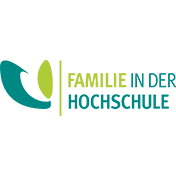
Semester fee
In order to enrol at Reutlingen University, a fee of 199.30€ is due each semester. Additional tuition fees are charged for the following degree programmes:

Tuition fees for a second degree
For a second degree, students who study in Baden-Württemberg are required to pay an additional tuition fee of 650€ each semester. A second degree is defined as a second or further Bachelor's or Master's degree following a previously acquired degree of higher education (or equivalent) in Germany. In certain instances, students may be exempt from the fee.

International students
International students, i.e. nationals from non-EU or EEA countries, who study in Baden-Würrtemberg are required to pay a tuition fee of 1,500€ per semester. This fee is to be paid in addition to the general semester fee (see above). In some cases, however, international students can apply for an exemption from the fee.
According to the DSW's Social Survey, students who do not live with their parents need - depending on their standard of living and place of study - an average of 864€ per month. This includes:
- Rent & utilities (electricity, water, heating, rubbish removal fees)
- Food & clothing
- Local transport & travel home
- Insurance (e.g. health insurance)
- Telephone, internet, radio & television fees
- Other expenses & pocket money
Part-time jobs
The most common way of earning some extra money during your studies is a part-time job. There are various options, ranging from student/part-time to mini- or temporary jobs, which can be quite flexible depending on the area and field of work.
"Hiwi"-Jobs
As a student or research assistant - "Hiwi" for short - you support the university's operations. The tasks are very diverse: from helping to prepare and carry out teaching and research, to supporting the evaluation of project data and contributing to social media posts, everything is possible!
"Werkstudentenjobs" (working student jobs)
As a working student, you earn money and gain (study-)relevant practical experience during the lecture period. This makes working student jobs a popular alternative to temporary jobs or voluntary internships. Those who attract positive attention often have good chances of remaining in the company after graduation. A working student job can therefore set the course for a later career and be a career springboard.
Good to know
No matter what job you decide on, inform yourself in advance about the applicable working time regulations and income limits for students in order to avoid disadvantages in terms of insurance contribution or payment of benefits (e.g. BAföG)!
There are numerous scholarships at Reutlingen University that support you in financing your studies abroad and help you realise your dream of spending a semester abroad. The state, the federal government and some private foundations also offer funding opportunities. Good grades are not always the only decisive factor - commitment and motivation are also important!
An important pillar for financing studies is the granting of benefits under the Federal Training Assistance Act - BAföG for short. If your own income or the assets of your parents are not sufficient to cover the costs of your studies, students can finance these partially or completely with BAföG.
The federal education loan provides targeted support for students in advanced phases of their education through a simple, low-interest loan. The loan is flexible, can be adapted to individual needs and is independent of BaFÖG, your own income or your parents' assets. Let the staff of the Studierendenwerk advise you!
For some years now, the "Bildungsfonds" initiative has been offering student funding that is independent of banks. Repayment is not made in fixed instalments, but instead is based on an agreed share of the subsequent first gross salary.
More Information
Study support
Since 2007, Deutsche Bildung has supported students of all disciplines with up to 30,000€ to help them cope with their living expenses, tuition fees or the implementation of a stay abroad. As part of the content-based funding programme WissenPlus, funded students also take part in various measures for a successful period of study and successful career entry (e.g. stress management training, job application counselling). The repayment of the study grant is made proportionally to the income after starting work, with the advantage that there is no risk of over-indebtedness.
Student loans
Regardless of the parents' income, banks offer loans specifically designed for students. The loan is intended to fully cover living expenses during a course of study with monthly amounts ranging from 100€-650€. In general, the disbursement period is set at 14 semesters. At present, the state-owned Kfw-Förderbank provides a nationwide loan programme for students. The Studierendenwerk is a partner of the KfW and will support you on site.









